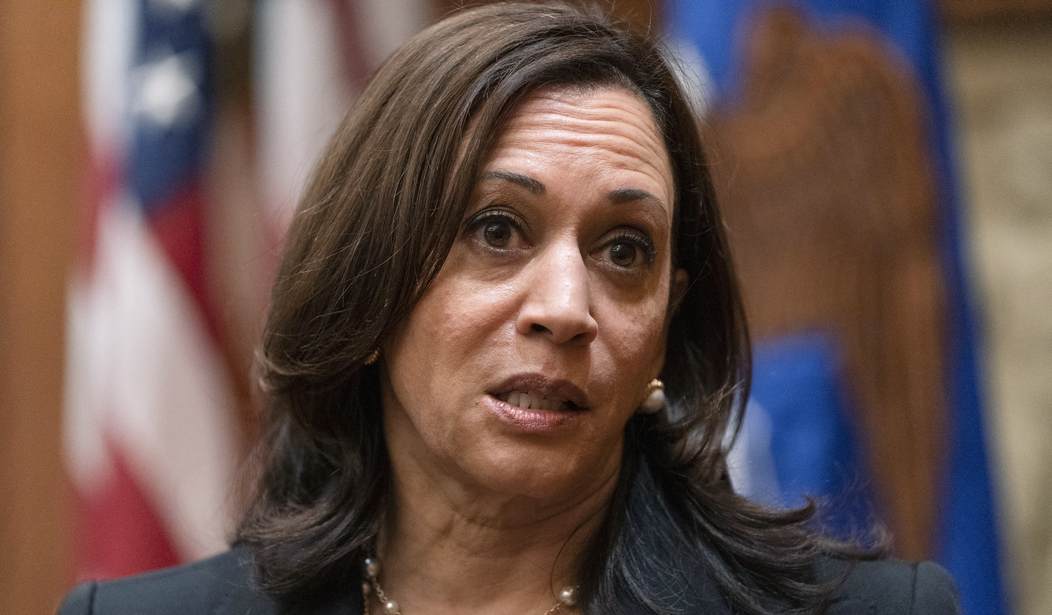Yesterday, Allahpundit wrote that having Vice President Harris endorse Terry McAuliffe for governor in a video being shown in tax exempt churches was a clear violation of the Johnson Amendment, which says that churches can encourage participation in elections but only in a non-partisan way.
Today, Johnathan Turley has written a similar piece making the argument that what VP Harris is doing intentionally violates federal law. He notes that the only way the White House can excuse themselves on this is to pretend they didn’t intend for Harris’ message to be played in churches.
This was a direct political pitch reportedly played in hundreds of churches. Of course, the White House could claim that any violation was committed by the churches if they played the video in prohibited areas. That assumes that this was not created for that purpose, but it would effectively throw the churches under the bus.
But Turley goes on to point out that what’s particularly hypocritical about this is that the Johnson Amendment was a bone of contention during the Trump administration. It started when candidates Trump and Pence put out a videos which were apparently shown in some churches prior to the 2016 election. Pence specifically mentioned the Johnson Amendment in his video:
“The Johnson Amendment has literally been on the books since the 1950s and it essentially threatens tax-exempt organizations and churches with losing their tax status if they speak out against important issues facing the nation from the pulpit,” Pence explained.
Pence was also quick to remind viewers that America’s strength “has come from communities of faith.”
“It was the pulpits around America that spoke of the evils of slavery and brought an end to the scourge of slavery in America even through a great civil conflict,” he said. “It was voices of faith and communities of faith that transformed our nation through the civil rights movement in our own lifetime and we’re a better nation for it.”
At the time, Vox treated this as a sign of the decline of the evangelical right. Then, President Trump issued an executive order in May 2017 which attempted to curb or perhaps clarify the Amendment a bit. Here’s what the executive order said:
In particular, the Secretary of the Treasury shall ensure, to the extent permitted by law, that the Department of the Treasury does not take any adverse action against any individual, house of worship, or other religious organization on the basis that such individual or organization speaks or has spoken about moral or political issues from a religious perspective, where speech of similar character has, consistent with law, not ordinarily been treated as participation or intervention in a political campaign on behalf of (or in opposition to) a candidate for public office by the Department of the Treasury. As used in this section, the term “adverse action” means the imposition of any tax or tax penalty; the delay or denial of tax-exempt status; the disallowance of tax deductions for contributions made to entities exempted from taxation under section 501(c)(3) of title 26, United States Code; or any other action that makes unavailable or denies any tax deduction, exemption, credit, or benefit.
Trump then repeatedly claimed that he had “gotten rid of” the Johnson Amendment, which he actually had not done. The Washington Post pointed to at least seven instances where Trump had made this claim in a fact check that ultimately gave him 4 Pinocchios. In other words, despite the executive order, the Johnson Amendment was still in effect then and continues to be now. Turley reaches the same conclusion and points out that people who were upset with Trump trying to sidestep the Johnson Amendment don’t seem to be saying much about it now:
The order expressly requires adherence to federal law and only states that “moral or political issues” may be discussed “from a religious perspective.” Harris is calling souls to the polls in a straight political speech. So even under Trump’s order, this would be a violation.
Putting aside any federal violation in such pitches, Trump’s desire to get the vote out through evangelical churches was widely denounced as an attack on the separation of Church and State. That was before McAuliffe ran into trouble in what was viewed as a reliably blue state that Biden won by a wide margin. Now the same media and legal figures are silent.
If this is indeed played in churches (as opposed to simply posted on Internet sites), it does appear a premeditated and unambiguous violation of the federal law governing churches as non-for-profit institutions.
In practice, the Johnson Amendment doesn’t seem to be enforced very often, but an AP story from 2017 notes that when a church advocated people not vote for Bill Clinton it became a target of groups on the left:
Lisa Runquist, a California lawyer who specializes in nonprofit and religious tax law, said it is a law with a lot of gray area, but she counsels clients to stay on the safe side of it. “Do you want to be the test case that goes forward?” she said she asks them.
Runquist cites a case in the 1990s when a New York church bought full-page newspaper advertisements that called on Christians not to vote for Bill Clinton. The organization Americans United for the Separation of Church and State lodged a complaint with the IRS. The IRS investigated, denied the church’s exempt status and a federal court upheld that decision.
So, to sum all of this up, in the past it was Trump and Pence who advocated for getting rid of the Johnson Amendment but the media and people on the left argued it was still in force despite Trump’s claims to the contrary. Now you have Vice President Harris and the White House coordinating hundreds of churches to potentially violate the same law. I guess we’ll see if this is still considered verboten or if the norms have suddenly changed.








Join the conversation as a VIP Member